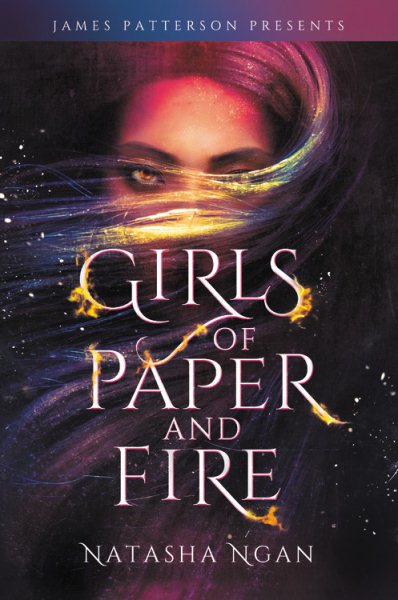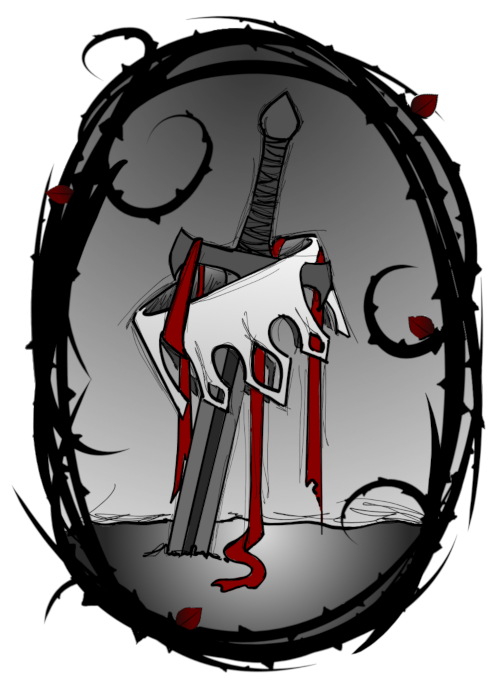For two years now, Sirens has published an ongoing series of essays that showcase the brilliance of our community—and give those considering attending a look at the sorts of topics, perspectives, and work that they are likely to encounter at Sirens. While we’ve postponed our in-person program to 2021, and we are gathering safely online this weekend, we wanted to take this opportunity to feature the exemplary work that the Sirens essayists have presented over the past two years. We hope that you find these works thoughtful, bold, and brilliant.

What Is It with Us and “Good Royalty”?
By Emma Whitney
 Natasha Ngan’s Girls of Paper and Fire is a treasure to me. Not because it is a perfect book (is there any such thing as a perfect book?) but because it is the first YA fantasy work I have read in years where the monarchy is clearly the antagonist. There is no “good” monarch waiting in the wings to rescue their people, but instead a whisper of revolution and behind it the knowledge that government structured around a concept of inherent inequality can never offer true freedom.
Natasha Ngan’s Girls of Paper and Fire is a treasure to me. Not because it is a perfect book (is there any such thing as a perfect book?) but because it is the first YA fantasy work I have read in years where the monarchy is clearly the antagonist. There is no “good” monarch waiting in the wings to rescue their people, but instead a whisper of revolution and behind it the knowledge that government structured around a concept of inherent inequality can never offer true freedom.
Why is it that, in YA fantasy literature, we so often write about the “good” monarch? Not that we don’t have bad ones, too. But the answer to a bad monarch usually seems to be a good monarch rather than the dismantling of a system that creates people with such a mass of concentrated power. For every Girls of Paper and Fire, I have seen a mountain of books where the seemingly problematic monarch is “only trying to do what is best” or, if we do have an evil king, the problems will be fixed by returning the “true” queen to the throne. There are a hundred variations on this, but only one story in a hundred seems to take the time to ask if it could maybe be the power structure itself that is creating the fundamental problems.
I know my personal feelings of antipathy towards royalty are particularly strong, and I don’t at all expect that others feel the same way. But I am continually surprised by the prevalence of “good” royalty in—particularly YA—fantasy literature. In this era, where many are focused on fighting for the equality of all, why do we continue to centralize in our writing a system that raises some above others merely by factors of birth and access? Does the presence of “good” monarchy in our stories mean we are longing for a monarchy to lead us?
I don’t think so.
Certainly I think it means we are (at least sometimes) fantasizing about good leaders in general. I think this is a common fantasy. Many “realist” pieces of fiction are indulging in that fantasy. (West Wing, anyone?) But why monarchy? What is it about that crown?

First, I think that we are accustomed to seeing monarchy in fantasy. I think we’ve seen so much of it that those are often the stories that grow in our heads. It is hard to get away from tropes we think of as normal. (Just like internalized misogyny.)
Second is an issue of scope. When someone without significant power has a piece of property stolen the story might be a mystery, a revenge story, or maybe a minor adventure. The theft may encompass their whole world but doesn’t expand to affect many others beyond their immediate circle. When that same thing happens to a monarch? Suddenly it becomes important to whole kingdoms, realms, worlds. Sometimes drama feels more meaningful when it has these expansive implications. It amps up the tension a hundredfold. If our heroes fail, the nation may fall or the world may end. (By the way, this is the same effect you get with a chosen-one story.)
Third is access. People with power have access that isn’t available to people without power. It’s why there are more millionaire superheroes than superheroes with student debt. Millionaires (and billionaires) can create the access they need to build freaking spaceships. And in the same vein, royalty often has easily substantiated access to armor and weapons, magical histories and relics. They do not have to worry about the family farm when they go on an adventure; they have retainers and servants for that.
But we know that your characters don’t need to have access, don’t need to be in control of the world they’re trying to save, to create an enthralling story. We have The Fifth Season, The Diviners, Texas Gothic. Stories where, while people may have the power to control earth or to commune with spirits, they don’t have power over other people. So why in high fantasy do we so often default to royalty?
We seem to love the story of the struggle to be a “good monarch.”
We have it in television (The Dragon Prince, She-Ra) and in comics (Sailor Moon), and in books (The Goblin Emperor, The Wrath and The Dawn, Lois McMaster Bujold’s Vorkosigan Saga). Kate Elliot has done it and Patricia C. Wrede has done it and literally everyone who has ever had a go at writing about King Arthur has done it. But could you really have a monarch that is truly “good”?
Personally, I believe that the answer is no. Not without completely redefining the term. Not without letting “good” include a vast amount of systemic inequality. You cannot remake a system for true parity without undoing the structure that maintains a person or persons at the top, above their subjects. Monarchs, as we define the term colloquially, are people who live in a palace, who have resources that others do not, who take on the burden of final decisions when their main claim to the position is their birth, not their study, and if from their study, so often due to access available to the rich that is absolutely inaccessible to the people they supposedly protect. Good monarchs often “do the hard thing for their people’s good.” It is, regardless of the monarch’s gender, the ultimate paternal figure who sacrifices his daughters to save them from an evil greater than death. When the monarch “has to do a thing” to keep their country safe, why do we not question the power structure?
I’ve been watching The Dragon Prince. Besides being beautifully drawn and well written, it is generally a comfortably, and sometimes forcefully, liberal show. It explicitly prioritizes understanding and community over the slaying of any great enemy. It is one of the most diverse fantasy stories ever animated for a major platform (no shock as it comes from the people who created Avatar and The Legend of Korra). But why, in the midst of all this progressive storyline, do we still have Ezran held up as an idyllic “good king” who might save them all? Because when you really come down to it, a predominant factor in conflicts like this is the rulers. It was not the villagers of Katolis and the other human kingdoms who went to war against Xadia; it was people who wanted consolidated power.
Am I saying that every fantasy monarch is evil? I have to admit that my urge to say yes is strong, but no. It’s fantasy, after all. In a fantasy land anything is possible, including a ruler who truly is the protector and champion of their people. I still adore your classical Arthur (against all common sense), because in so many of the stories he is just trying to make a better life for everyone. I still cry when Boromir dies in Aragorn’s arms (and okay, if I’m spoiling that I don’t know what to tell you). But I believe that the vision of a “good monarch” is more fantastic than the possibility of dragons. (How is Archaeopteryx not just a small dragon?)
I do not want to discount what representation in the “classic” stories can give us. When I started reading Audrey Coulthurst’s Of Fire and Stars, having a classic princess scenario that I knew promised a queer romance warmed my cranky, bitter heart. I can imagine that is only a small part of the feeling others may get finally seeing a princess of color, a genderqueer princess, a disabled princess, all who lead the charge of their own stories. That warmth, that self-recognition, and empowerment, they are important. I do not want to ask for those stories to disappear.
All I want is to ask why we still tell these stories. Why do we want to relive the “romance” of the Tudors, when we have other history to revere in the shape of women like Dolores Huerta and Sojourner Truth, stories where no one was born to anything, but rather made their own fate?
Stories where someone took back a little piece of the power that had been hoarded by those with all the wealth, not by becoming part of their system, but by helping to fundamentally change it.
Ursula K. Le Guin famously said, “We live in capitalism; its power seems inescapable—so did the divine right of kings.” I feel this to the marrow of me. Why do we continue to write about power that has been consolidated under one person or family when we can fantasize about a world that destroys the oligarchy and offers a vision of a truer equality?
By the way? There’s more to that quote: “Any human power can be resisted and changed by human beings. Resistance and change often begin in art.”
 Emma Whitney is a math-brained aspiring accountant who would rather be thinking about dragons. She works as an administrative assistant but spends most of her time plotting to overthrow capitalism and making costumes for her niece (who is still a little too young to enjoy them). She currently lives in Portland, Oregon, with her wonderful roommate, an exponentially growing yarn stash, and a robotic dinosaur named Dot.
Emma Whitney is a math-brained aspiring accountant who would rather be thinking about dragons. She works as an administrative assistant but spends most of her time plotting to overthrow capitalism and making costumes for her niece (who is still a little too young to enjoy them). She currently lives in Portland, Oregon, with her wonderful roommate, an exponentially growing yarn stash, and a robotic dinosaur named Dot.







Connect with the Sirens community
Sign up for the Sirens newsletter